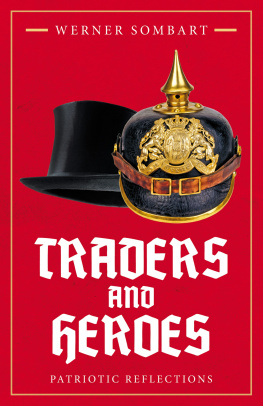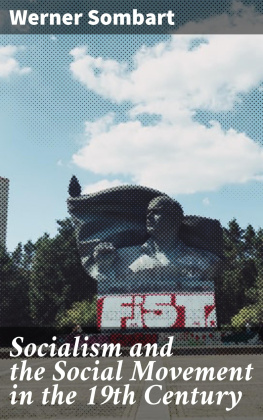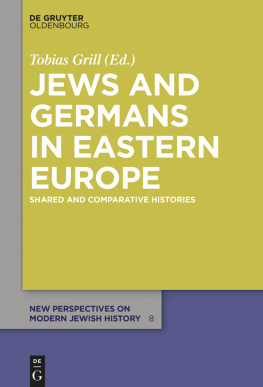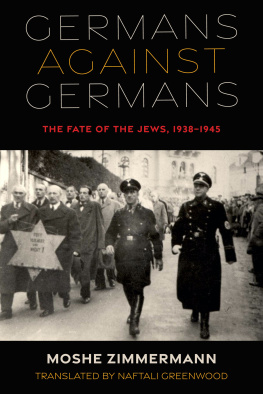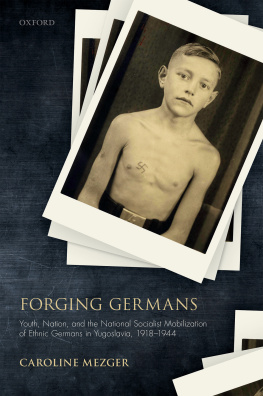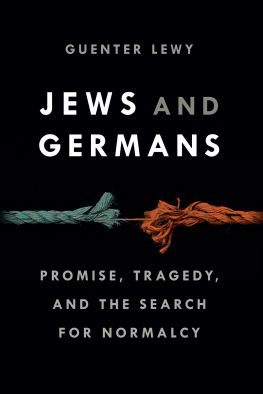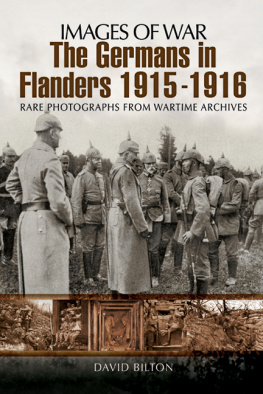
Arktos
London 2021

Copyright 2021 by Arktos Media Ltd.
All rights reserved. No part of this book may be reproduced or utilised in any form or by any means (whether electronic or mechanical), including photocopying, recording or by any information storage and retrieval system, without permission in writing from the publisher.
Arktos.com | Telegram | Facebook | Twitter | Instagram | Gab.ai | Minds.com | YouTube
ISBN
978-1-914208-32-4 (Softcover)
978-1-914208-33-1 (Hardback)
978-1-914208-34-8 (Ebook)
Translation
Alexander Jacob
Editing
Constantin von Hoffmeister
Proofreading
Alexis Jenners
Cover and Layout
Tor Westman
Foreword
By Alexander Jacob
W erner Sombart (18631941), the German economist and social philosopher, is noted today for his several pioneering works on the capitalistic ethos. Although Sombart began his sociological career as a socialist in the Marxist vein, he gradually dissociated himself from the economic orientation of Marxs social theory in favour of a more voluntarist understanding of the springs of social evolution which supported the traditional and aristocratic model of society that Marx had sought to destroy.
In his Die deutsche Volkswirtschaft im neunzehnten Jahrhundert (1903), Sombart turned his back on the socialist glorification of progress, which he saw as destructive of the human spirit, and revived the mediaeval ideal of the guild community, which involved, as Arthur Mitzman summarises it, the full absorption and development of the personality of the producer in his work; limited goals; and the shaping of the productive units on the model of the family community. The traditional popular comfort of religion too has been destroyed by capitalism, which bolstered the liberal intellectual movements of the Enlightenment.
In Hndler und Helden (Munich, 1915), written to inspire young German soldiers in their combat against the English forces, Sombart considers the World War, started in Central Europe in July 1914, to be essentially one between England and Germany.
War for the English has always been a chiefly commercial enterprise, whereas for the German it is a defence of his soul from the deadening influence of this same commercial spirit. In order to reveal the essential mercantile nature of the English nation, as well as of the war that they had recently embarked on in Europe, Sombart first points to the fact that the English have, through the ages, had no higher philosophy than a utilitarian and eudaimonistic one. This is demonstrable by a perusal of the works of the major English thinkers from the Elizabethan empiricist Francis Bacon (15611626) to the more recent evolutionary biologist and sociologist Herbert Spencer (18201903). Bacons utilitarian views are geared to the acquisition of comfort as a source of human happiness. And it is this desire for comfort that, according to Sombart, informed the British trading enterprises around the world from the beginning of the 16th century onward, which, in turn, consolidated the mercantile mentality of the British nation as a whole.
Herbert Spencers evolutionary sociological division of the history of societies into two major types, the militant and the industrial, is another device employed by the British to elevate the industrial society, focused on the same goal of comfort, above the militant. According to Spencer, the militant society is inferior because it generally posits violent actions as a national norm and deadens the sympathies of its citizens, whereas the industrial society encourages altruistic sentiments and the resulting virtues.
The militant society, according to Spencer, is focused on a societys concern to preserve itself against hostile societies and nations to such a degree that all of society revolves around the military class and even those who do not bear arms (the workers) are forced to sustain the former. All individuals, however, are subservient to the state that acts as the guardian of the society as a whole. The life, the actions and the possessions of each individual must be held at the service of the society ( Principles of Sociology , Art. 561). The state is centralised and all of society organised in a hierarchical manner. Private commercial or social corporations are generally discouraged while the state pursues autarkic and protectionist economic policies. Spencer points to the German Empire of 1871 in particular as an example of a militant society where the army has been steadily strengthened to control national industry, and civil officialism has been replaced by military officialism. Bravery and strength are considered to be ideal individual virtues, since these are necessary for success in war, while patriotism and a sense of revenge against those who harm it form the supreme social virtues of a militant society.
In an industrial society, on the other hand, the individuals do not work for corporate aims but for their own individual ones to the degree that the individuals individuality has to be defended by the society instead of being sacrificed to the latter as in the case of a militant society. Since the task of external protection is diminished in an industrial society, the state is more focused on preserving the life, liberty and property of its citizens. No longer organised from above as in a militant society (as well as in a communistic one, which shares in the same compulsory cooperation of the citizens), the industrial society operates not on the principle of status but on that of contract, whereby each person is rewarded according to his merits. The state can no longer be centralised and the scope of its administration of the lives of the citizens is increasingly reduced. Among individuals, the industrial society fosters a sense of independence and diminishes those of patriotism and loyalty to any superior authority. There is a concomitant proliferation of individual associations of a mercantile and social nature. Finally, with the spread of industrialisation, the antagonisms between nations too are subsumed under the larger interests of international trade.
But Sombart considers the industrial society extolled by Spencer as a contemptible product of bourgeois individuals, who are devoted to their personal comfort, and of merchants, who desire peaceful relations between nations only in order to expand their private businesses. The British Empire, built on these considerations, is itself only a mechanical aggregation of commercial interests and is not informed by any ideal civilisatory impulses. The wars conducted by the British are also essentially trade wars, which seek to punish violations of the contracts established by them with other nations for their international commercial purposes. Sombart points out in this context that one of the principal causes of the first international war was Britains need to eliminate the threat posed by German industry to its colonial empire.
In the second part of Hndler und Helden, Sombart points to the philosophical superiority of the Germans to the British. He reveals that, contrary to the history of British philosophy, the entire tendency of German philosophy, from the Romantics of the 18th century to the idealists of the 19th, has been one that posits a transcendental world of spirit above that of the individual on earth. It is this consciousness of participation in a higher world that gives German man a higher purpose than the limited eudaimonistic and utilitarian ones that have preoccupied the English thinkers.
Next page
